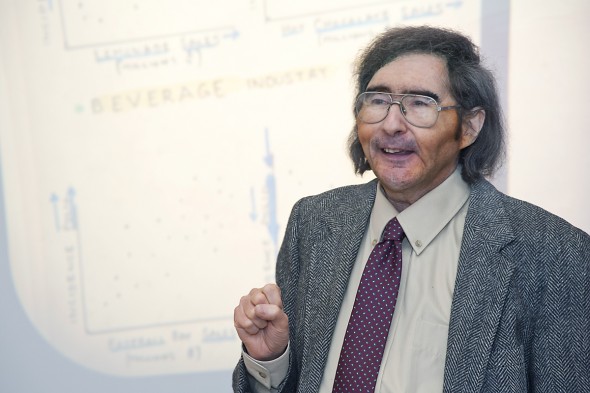2013 Silver Circle Awards: Ronald Pavone

“All I try to do is to pass along something of what they have added to my own educational experiences, growing up from grade school to graduate school,” Ronald Pavone says. Photo: Roberta Dupuis-Devlin
For Ronald Pavone, teaching students in psychology and statistics how to learn is just as important as teaching them what to learn.
“We cover effective learning methods not only as applied to studying for their coursework, but also as applied to other current research and future pursuits outside of class,” Pavone says.
The three-time Silver Circle winner says the topic he teaches, psychology, is “intrinsically fascinating to students” — qualities of human beings that directly apply to themselves and the important people in their lives.
Students in his class on statistical methods in the behavioral sciences can’t rely on memorizing content — they must apply sequential decision-making procedures to class-related problem-solving exercises.
He often discusses how these step-by-step procedures can be used in other life settings.
“Teaching statistics has interested me because students gain familiarity and practice with active procedural problem-solving skills that are additional to ‘head knowledge,’ or content levels of learning,” Pavone says.
Some students enter the course lacking confidence in their math and science abilities.
“I have liked working with these students, showing them that they, too, can become good at such processes and skills,” he says.
Outside the classroom, Pavone is available through flexible office hours and appointment times.
“This enables students to learn by interactively participating and discussing topics and issues with me. It results in an individually tailor-made exchange of ideas that build toward good understanding of their questions,” he says.
Pavone says the individual attention he got from his own teachers inspires and influences his instructional style.
“All I try to do is to pass along something of what they have added to my own educational experiences, growing up from grade school to graduate school,” he explains.
“They were successful teachers because they ended up making what have turned out to be long-lasting differences in my life — in some cases, decades after I was their student.”
